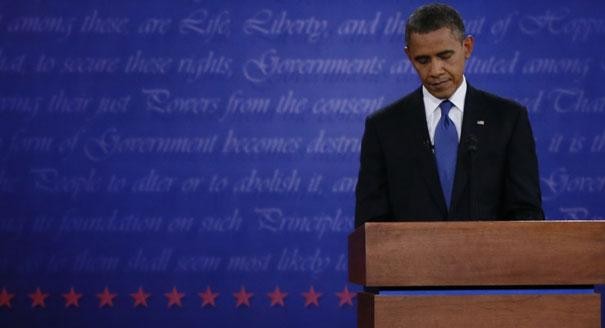Picking 25 people who had a major impact on the life and times of Memphis over the past 25 years is easy. In fact, you can easily pick 50. Narrowing the list down to 25 is the hard part. We made our final choices keeping in mind several areas of influence: politics, government, entertainment, sports, etc. We tried to pick folks whose contributions have stood the test of time or were responsible for a major shifts in attitude or direction.
It is by no means a perfect list, as these things are by necessity subjective. But it’s our list — and it’s a good one. — BV

Laura Adams
Laura Adams
Adams lives and breathes Shelby Farms Park. She was appointed as the conservancy head in 2010, but long before that, Adams advocated for increased use of the city’s largest urban park through Friends of Shelby Farms Park. Since she’s been in the lead role of the nonprofit conservancy, Adams has overseen the addition of the seven-mile Shelby Farms Greenline, a new foot bridge over the Wolf River, the state-of-the-art Woodland Discovery Playground, and new festivals and attractions, and soon, work will begin on expanding Patriot Lake.
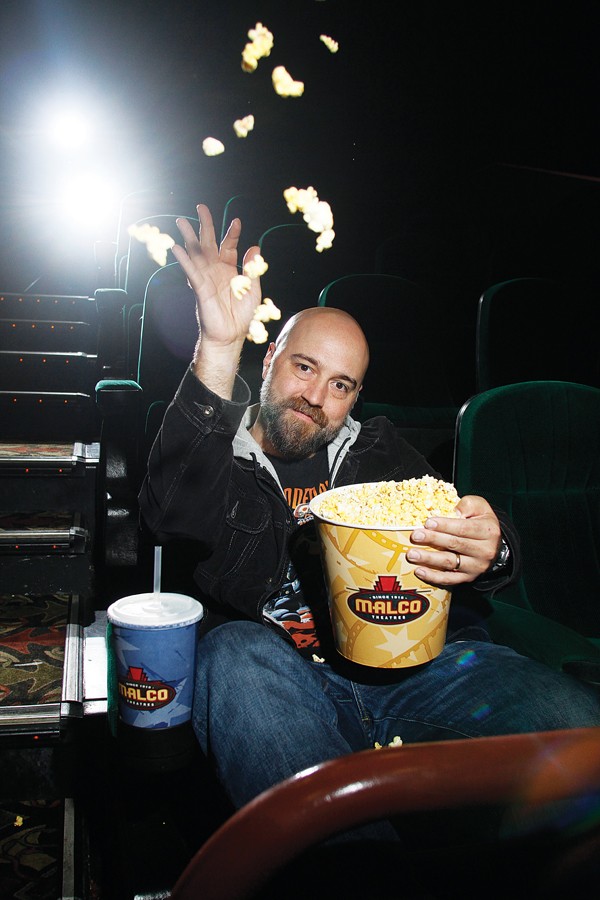
Craig Brewer
Over the past 25 years, Hollywood has come to Memphis to shoot several high-profile movies, including The Firm, 21 Grams, and Walk the Line. But there’s only one local filmmaker who took Memphis to Hollywood: Craig Brewer.
On the strength of his first film, 2000’s The Poor & Hungry, Brewer got Hollywood backing for the movie that put Memphis Indie filmmaking on the map: 2005’s Hustle & Flow. The flick won Sundance, got a major theatrical release, and was nominated for two Academy Awards, winning one for “It’s Hard Out Here for a Pimp” by Three 6 Mafia and Frayser Boy.
Brewer followed it up with another Memphis-made film, Black Snake Moan, and then his biggest yet, a remake of Footloose. Nowadays, Brewer divides his time between Memphis and L.A., but make no mistake: There is no bigger or more powerful advocate for the Bluff City film community.
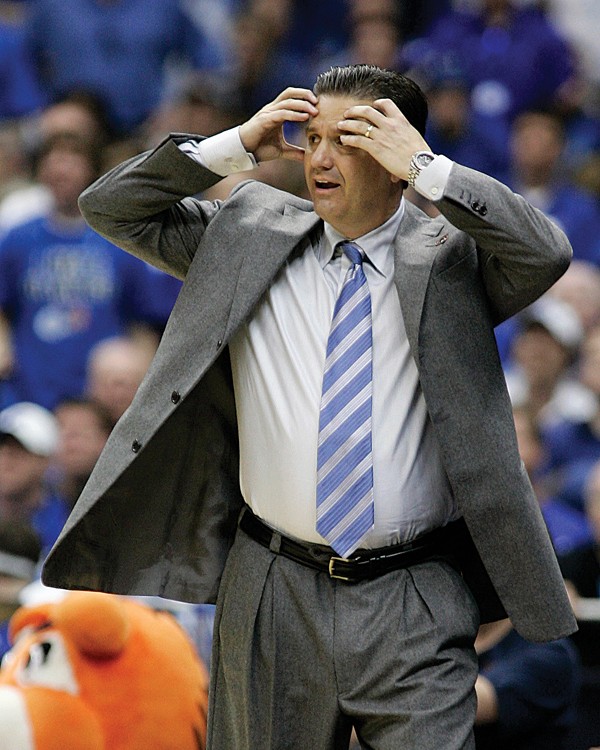
John Calipari
John Calipari
Let’s get one thing straight: Before John Calipari, there was great Memphis Tigers basketball. He did not make the program — but he did make it relevant again when college basketball was no longer essential for players to make it in the NBA. Calipari arrived in Memphis in 2000, licking his wounds after a failed stint in the professional league. He was greeted by some here as a savior (U of M basketball was on the ropes following the Tic Price scandal) and by some as a slick operator (Calipari’s previous college employer, UMass, had to vacate a Final Four because of NCAA violations while he was in charge). But when Calipari’s teams began winning big here, the coach went from someone Memphians hated to love to someone we loved to love. And, when he left for a job at the University of Kentucky — taking some big-time recruits with him — he turned instant villain, someone we loved to hate. Even now, five years after he’s gone, not many a day goes by where his name isn’t uttered on local sports talk.

Karen Carrier
Karen Carrier
Anybody with taste buds in this town should be grateful that Karen Carrier is the restless type. In 1991, she opened Automatic Slim’s Tonga Club on Second Street across from the Peabody. When not a lot was happening in that area, this restaurant’s cool décor and innovative fare inspired by “sun-drenched” locales offered a chic downtown oasis. In 1996, Carrier proved pioneer again when she converted her own home in Victorian Village to pretty, white-tableclothed Cielo. Later, she dumped that concept and made the space into the fashionable Mollie Fontaine Lounge, and then there’s the Beauty Shop, Do, and Bar DKDC. Basically, Carrier is the pied piper of happening restaurants and one of Memphis’ true culinary pioneers.
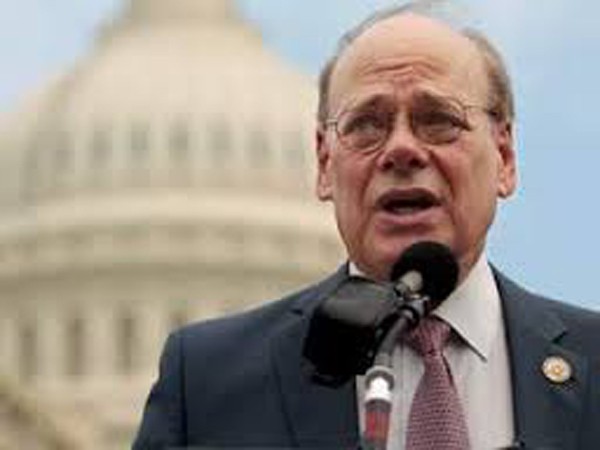
Steve Cohen
Steve Cohen
The congressman from Memphis’ 9th Congressional District since his first election in 2006, Cohen is still goin,’ running for a fifth term in 2014. Though his first win was via a plurality against a dozen-plus opponents in the predominantly African-American district, Cohen has since won one-on-one contests against name primary challengers with margins ranging from 4-to-1 to 8-to-1.
Cohen’s political durability, first evinced during a 26-year run as a Tennessee state senator, owes much to hard work and tenacity, both in office and on the campaign trail. His most important legacy as a state legislator was his sponsorship of a state lottery and the Hope Scholarship program, which it funds. He’s a vigorous supporter of women’s rights and programs benefiting health care and the arts. Among his contributions in Congress, where he serves on the House Judiciary Committee, are his successful sponsorship of a resolution formally apologizing for the country’s history of slavery.

Margaret Craddock
Margaret Craddock
When Margaret Craddock took the helm of the Metropolitan Inner-Faith Association (MIFA), she not only held the organization on course but also led it into new waters.
Craddock began working at MIFA part-time in 1982 and then full-time in 1988. Spurred by her experiences there, she earned degrees in urban anthropology and law from the University of Memphis. Craddock was entrenched at MIFA and continued to rise to prominence there.
As associate director, she was instrumental in developing one of MIFA’s most noted programs. The agency decided to build five three-bedroom homes for emergency housing in 1989. Now, that program, implemented in MIFA’s Estival Place communities — gives homeless families a place to live for two years while they take life-skills classes.
In 1997, Craddock became the first woman to hold MIFA’s top job. At one time, she oversaw an $11 million budget, 160 employees, and more than 4,000 volunteers, and she actively worked to forge outside community partnerships.
Craddock focused MIFA’s mission, built on the agency’s inner-faith heritage by including more clergy on its board of directors, developed more community partners, and improved and modernized MIFA’s inner workings. Craddock retired in 2011.

DJ Paul & Juicy J
DJ Paul and Juicy J
DJ Paul and Juicy J collectively helped globalize the Memphis rap scene when they formed the label Hypnotize Minds in the early 1990s. Under the duo’s leadership, local acts, including Three 6 Mafia, Project Pat, and a magnitude of other artists were introduced to the world. Several Gold and Platinum records have been won by the label, and the first Memphis-based rap movie, Choices, was filmed under their auspices.
In 2006, they became the first hip-hop artists to win an Academy Award for Best Original Song, “It’s Hard Out Here for a Pimp,” and were showcased on the MTV reality sitcom “Adventures In Hollyhood.”
Although they’ve taken a hiatus as a collective, both artists continue to prosper. Juicy J is enjoying the spoils of a fruitful solo career while DJ Paul has reestablished Three 6 Mafia as Da Mafia 6ix.

John Elkington
John Elkington
To understand the impact John Elkington has had on downtown Memphis, consider Beale Street before he began to manage it in 1983: blocks of abandoned and boarded-up buildings, trash littering otherwise empty streets.
As the developer and manager of modern Beale Street, Elkington transformed it into Memphis’ premier entertainment district and one of the top tourist destinations in the U.S.
The relationship between Elkington and city government ended in 2010. Following the announcement, Memphis mayor A C Wharton said, “Pioneers always get bloodied. [Elkington] went in when others did not go in, and this community owes him a debt of gratitude.”
Despite the public break-up, Elkington will leave one very important fingerprint on the future of the street he helped create. A 2011 study of Beale Street said thanks to Elkington “the district’s uniqueness and special personality have been largely protected and maintained.”
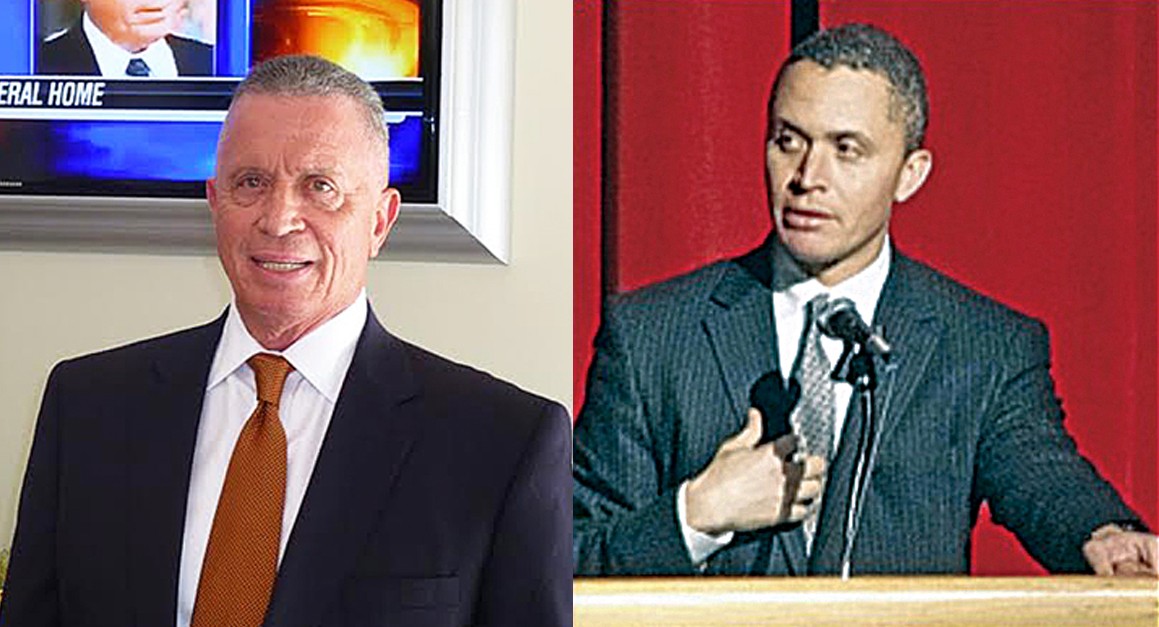
Harold Ford Sr. / Harold Ford Jr.
Harold Ford Sr. /Harold Ford Jr.
This father/son combination held the Memphis congressional district (first designated Tennessee’s 8th, later the 9th) from 1974 until 2006, beginning when Democrat Ford Sr., then a state representative, won in an upset over the Republican incumbent, becoming the state’s first elected black Congress member.
A member of an upwardly mobile black family invested in the funeral home business, Harold Ford Sr. became the patriarch of an extended-family political dynasty, which has consistently held positions in state and local government ever since. Wielder of the “Ford ballot,” an endorsement list of candidates in each successive election, Ford Sr. became influential in Congress as well but was ensnared in a Reagan-era Department of Justice prosecution for alleged bank fraud that, after one mistrial, would end with Ford’s exoneration in a 1993 retrial.
In 1996, the senior Ford stepped aside, backing his son Harold Ford Jr., who won election that year and four more times. Uninterested in the kind of local political organization overseen by his father, and more conservative politically, Ford Jr. directed his ambitions toward national power instead and was widely considered a prospect to become the nation’s first African-American major-party nominee for president. Beaten to the U.S. Senate by Illinois’ Barack Obama in 2004, Democrat Ford made his own try for the Senate in 2006, narrowly losing to Republican Bob Corker. He subsequently married and moved to New York, where he works on Wall Street. He is still considered to be a political prospect, with a rumored Senate run in the Empire State.
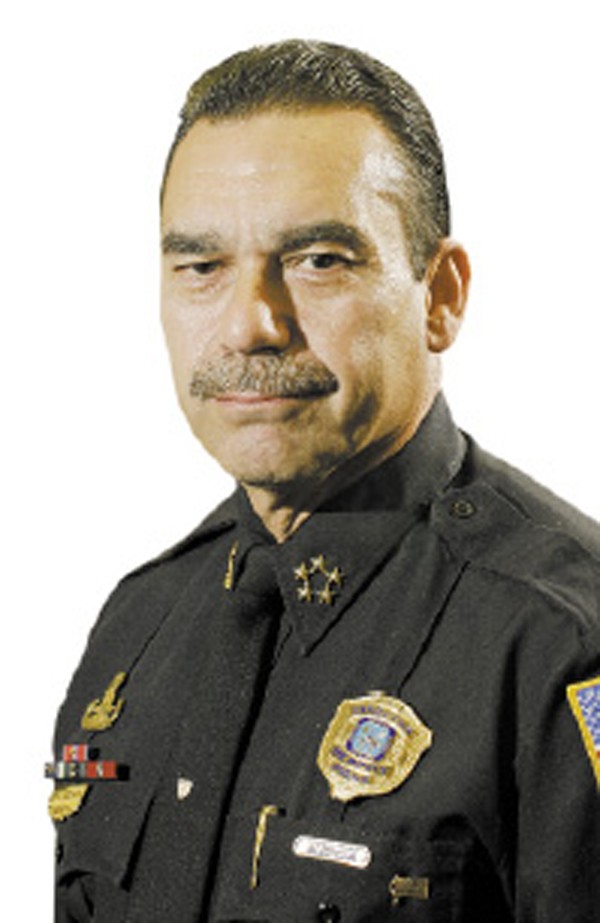
Larry Godwin
Larry Godwin
The former Memphis Police Department (MPD) chief spent 37 years tenured with the MPD. Beginning as an undercover narcotics officer in 1973, Godwin later was a homicide investigator and commander of the crime response/bomb unit before being named police director in 2004.
Godwin helped restructure the department’s method of operation, adding new crime prevention programs, such as Blue CRUSH; established a $3.5 million technology hub, Real Time Crime Center; and increased the number of police on the streets. Under his leadership, the percentage of violent crimes dropped significantly, and numerous undercover investigations targeting narcotics sales were successfully executed.
Following his retirement in 2011, Godwin became the deputy commissioner of the Tennessee Department of Safety and Homeland Security.
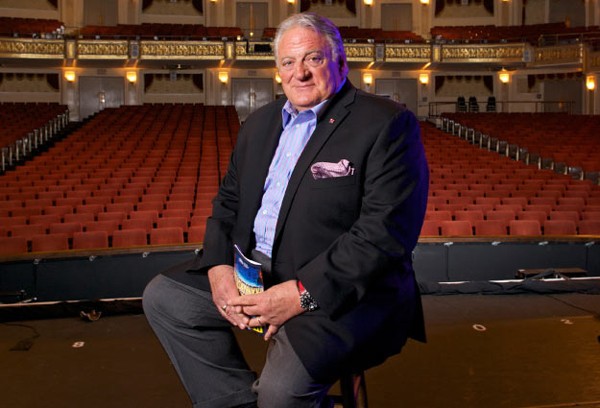
Pat Halloran
Pat Halloran
Halloran moved to the city in 1969 and was elected to the Memphis City Council within five years. With the Memphis Development Foundation (MDF), he saved the Orpheum from the wrecking ball. The theater reopened in 1984 and has set records for booking touring Broadway shows. Halloran has earned three Tony Awards, notably for the musical Memphis. In March 2014, the MDF began construction on the The Orpheum Centre for Performing Arts & Education, a 40,000-square-foot facility featuring theater space, classrooms, an audio-visuals arts lab, and event rental space. Without Halloran’s ongoing vision for the Orpheum through the years, Memphis would be an infinitely less interesting city.
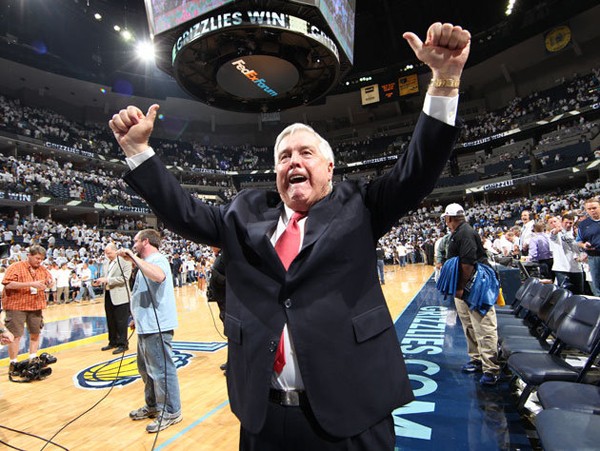
Michael Heisley
Michael Heisley
For decades, Memphis had pursued an NFL team, but the city’s hopes were dashed in 1993, when the league opted against awarding Memphis a team. The NFL settled in Nashville, leaving a bitter taste in Memphians’ mouths. It seemed a pro sports team would never move here. That changed in 2001, when Michael Heisley, billionaire owner of the NBA’s Vancouver Grizzlies, decided to relocate his team to Memphis. It was a shocking move at the time and is still shocking in retrospect. Local power players were crucial in making the city attractive to Heisley, securing financing for FedExForum, but it was Heisley’s call. His decision radically affected downtown Memphis, the entertainment industry, sports business, sports talk, and even the city’s psyche.
The outspoken owner had his ups and downs in the public eye over the years, but he did right by Memphis. He eventually sold the team in 2012 and passed away earlier this year. Never forget: Before there was grit and grind, there was Michael Heisley.
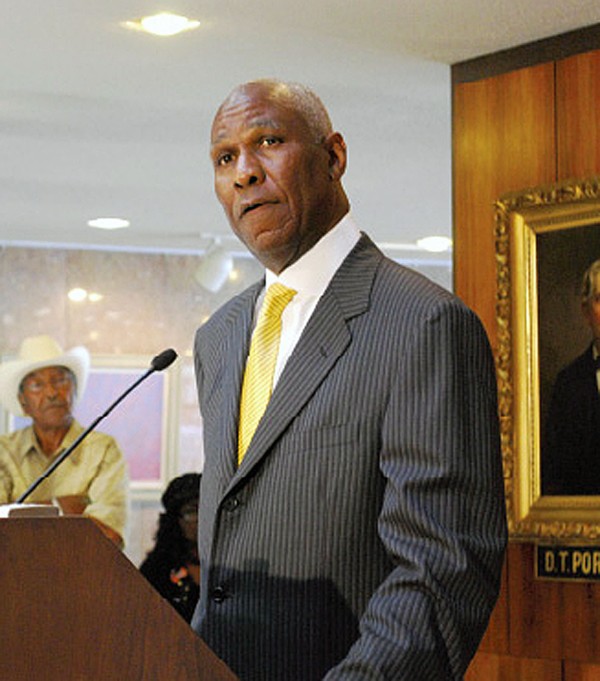
Willie Herenton
Willie Herenton
Herenton was born to a single mother on Memphis’ south side. She lived to see her son become the city’s first African-American school superintendent and later witnessed his five separate inaugurations as Memphis’ mayor, after becoming the first black person ever elected to that position, in 1991.
A Booker T. Washington High School graduate, Herenton was an amateur boxing champion as a youth. Pursuing education as a career, he earned a Ph.D. and worked his way up rapidly in the Memphis City Schools system, becoming its superintendent in 1978. An educational innovator with magnet schools and other new options, he resigned reluctantly in the wake of negative publicity about a sexual liaison with a teacher and a modest administrative scandal.
He landed on his feet, becoming almost instantly a consensus black candidate for mayor in 1991. Considered a strong chief executive, he eventually lost interest in the job and resigned in 2009. He made an unsuccessful challenge to incumbent 9th District Congressman Steve Cohen in 2010 and has spent the time since attempting to develop a chain of local charter schools. He now runs a charter school program.

Benjamin L. Hooks
Rev. Benjamin L. Hooks
A native Memphian, Hooks was largely known as a seminal civil rights activist. A Baptist minister and attorney, he was the first African-American Criminal Court judge in the South since the Reconstruction Era, and the first African-American appointee for the Federal Communications Commission.
During the civil rights movement, Hooks helped orchestrate protests and sit-ins, and promoted the importance of education. He led the National Association for the Advancement of Colored People (NAACP) for 15 years.
Hooks was a strong advocate for racial, social, and economic justice. The civil rights icon died in 2010, but his legacy lives on through the Benjamin L. Hooks Institute for Social Change, Benjamin L. Hooks Central Library, and the Benjamin L. Hooks Job Corps Center.

Carissa Hussong
Carissa Hussong
That cool Greely Myatt piece you have on your wall, the one that looks like nails…that is art with a capital “A.” It does not match your couch. Other than family and friends, about half-a-million Memphians will never see that piece. But all of us can check out Myatt’s Quiltsurround, a metalwork quilt used to cover up City Hall’s air units. That work and nearly every piece of Memphis’ public art created in the past 17 years — from the murals in Soulsville and Binghampton to the menagerie of art at the Benjamin L. Hooks Central Library — traces its lineage to the UrbanArt Commission and its founding executive director, Carissa Hussong.
Hussong left the commission to become the executive director of the Metal Museum in 2008. Under her lead, the museum has introduced its “Tributaries” series, featuring the work of emerging metal artists.

J.R. “Pitt” Hyde
Hyde grew up watching his grandfather and father turn Malone & Hyde into one of the country’s largest food wholesalers.
“They took risks that many people considered unwise — and succeeded, despite the odds,” Hyde says. “I believe my exposure to this type of ‘pioneering’ mindset gave me the drive to try new, unproven ventures.”
Those ventures include being the founder of auto parts giant AutoZone, chair of biopharmaceutical startup GTx Inc., co-founder of the private equity firm MB Ventures, the impetus (along with his wife, Barbara) behind the $69 million Hyde Family Foundation, and scion of several other highly placed and deep-pocketed endeavors rooted in Memphis — most notably the National Civil Rights Museum and Ballet Memphis.
Hyde was instrumental in the founding of the Memphis Bioworks Foundation, Memphis Tomorrow, and the National Civil Rights Museum. He is a minority owner of the Memphis Grizzlies and helped bring the NBA team to Memphis.

Robert Lipscomb
Robert Lipscomb
For years, Lipscomb has been significantly involved in the restructuring of public housing in Memphis, as well as the redevelopment of its downtown and inner city communities. In 2009, he was appointed executive director of the Memphis Housing Authority and director of the city’s Division of Housing and Community Development.
Motivated by the desire to improve the city’s underprivileged living conditions, Lipscomb developed Memphis’ first strategic housing plan. Under his guidance, numerous run-down and crime-plagued housing projects have been replaced with modern developments.
Lipscomb is spearheading the $190 million project to redevelop The Pyramid into a Bass Pro Shops retail center. He’s also involved in the planned redevelopment of the Mid-South Fairgrounds.
A native Memphian, Lipscomb created the Down Payment Assistance Program, the Housing Trust Fund, the Housing Resource Center, and other housing initiatives.

Jackie Nichols
Jackie Nichols
Playhouse on the Square’s founding executive producer doesn’t just make theater. He makes community. And he makes sense. Loeb Properties may have ponied up the money to bring back Overton Square, but it was Jackie Nichols who literally set the stage for the area’s incredible turnaround. Nichols was still a teenage tap dancer when he realized that Memphis needed producers more than it needed performers.
In 1969, he launched Circuit Players. In 1975 he expanded, opening Playhouse on the Square on Madison Avenue. In 2010, Nichols, also instrumental in the founding of TheatreWorks, moved his operations from the old Memphian Theatre into a $12.5 million, custom-built performing arts facility at Cooper and Union. When Overton Square developer Robert Loeb asked Nichols what it would take to make Overton Square work as a theater district, Nichols answered, “More theaters,” paving the way for Ekundayo Bandele’s Hattiloo, which opens to the public in July.
The new Playhouse on the Square has allowed for collaborations with the Memphis Symphony Orchestra and created a Midtown home for arts institutions like Ballet Memphis and Opera Memphis. But Nichols’ legacy is best represented by Memphis’ thriving independent theater scene, made possible by the space, equipment, and support he’s created. His greatest contribution to the city may be in showing us that the arts really can be a sound investment.
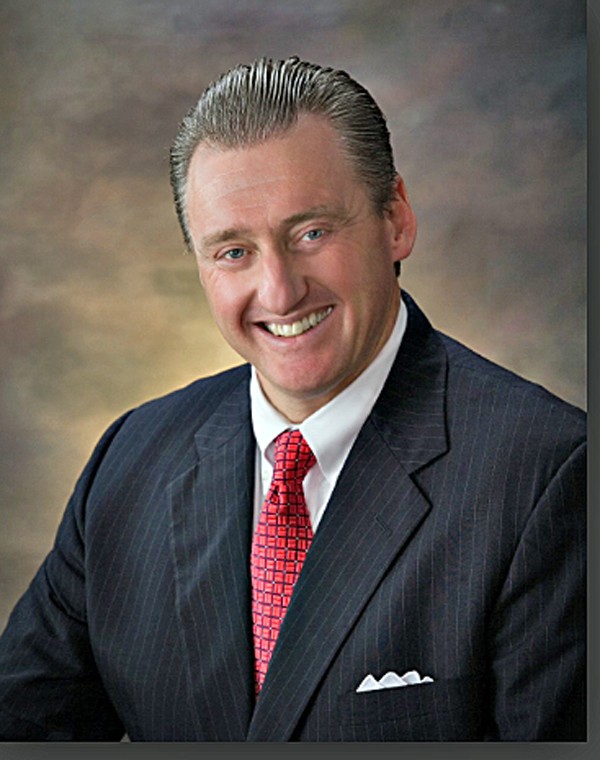
David Pickler
David Pickler
Once considered the “president-for-life” of the old county-only Shelby County Schools (SCS) board, to which he was first elected in 1998 and led until that version of the board ceased to be with the SCS-Memphis City Schools (MCS) merger of 2011-13, Pickler continued to represent Germantown/Collierville on the first post-merger SCS board, pending the creation of new suburban school districts.
Many blame the surrender of the MCS charter and subsequent forced merger on Pickler’s decades-long vow to seek special-school-district status for the original SCS system, which was publicly renewed when a Republican majority — presumed to be suburb-friendly — took over the legislature in 2010. Pickler contends that then-MCS Board Chairman Martavius Jones, a prime mover in the charter surrender, already harbored merger plans.
In any case, Pickler, a lawyer who also operates Pickler Wealth Advisers, an investment/estate-management firm, continues his involvement with education matters as president of the National School Boards Association and is thought to harbor political ambitions.

Beverly Robertson
Beverly Robertson
Robertson has headed up the Civil Rights Museum since 1997, but perhaps her greatest achievement has been overseeing the museum’s recent $27.5 million renovation. The old Lorraine Motel, where Dr. Martin Luther King Jr. was shot in 1968, and the adjoining building have been remodeled with interactive touch-screen exhibits, a slave ship where visitors can crawl into the tiny space where slaves were held, and the recreated courtroom from Brown vs. Board of Education. Since Robertson took the helm, the museum has been identified as one of the nation’s top 10 attractions by National Geographic’s Young Explorers and as a “national treasure” by USA Today. Though she’s led the museum for 16 of its 22 years, Robertson has announced that she will retire next month.

Gayle Rose
Gayle S. Rose
We’ll bet that no other University of Northern Iowa (UNI) music student has ever been named by Business Tennessee magazine as one of our state’s “100 Most Powerful People.” But then, Gayle Rose isn’t like most people. After earning degrees in music and business from UNI, the accomplished clarinetist graduated from Harvard with a master’s in public administration. Rose spearheaded self-help guru Deepak Chopra’s international publishing and TV ventures.
She co-founded 10,000 Women for Herenton (later 10,000 Women for Change), co-founded the Women’s Foundation for a Greater Memphis, founded the Rose Family Foundation, and earned the national “Changing the Face of Philanthropy Award.” She also formed Max’s Team, a volunteer organization that honors the memory of her late son.
Rose is the principal owner and CEO of Electronic Vaulting Services (EVS) Corporation, a data protection company, headquartered in Memphis. Prior to joining EVS, Rose served as managing director of Heritage Capital Advisors, LLC, a private equity, corporate advisory, and asset firm with offices in Atlanta and Memphis.
Rose is perhaps best-known for leading the NBA “Pursuit Team,” which eventually attracted the Vancouver Grizzlies to Memphis in 2000.

Maxine Smith
Maxine Smith
In 1957, Memphis State University refused to admit Maxine Smith because she was black, and that inspired her to take on the South’s racist attitudes and fight for civil rights. Smith headed up the local NAACP and became one of few women leaders in the male-dominated local civil rights movement. She and her husband, Vasco Smith, protested segregation at the Memphis Zoo and the Memphis Public Library, and she fought to reorganize the city school board to allow black candidates a chance at winning city elections. Smith was elected to one of those school board seats in 1971, and afterward, she became a huge proponent for court-ordered busing, which she saw as a way to overcome city leaders’ attempts at only integrating a few schools for show. Smith sat on the board of the National Civil Rights Museum and received the museum’s National Freedom Award, along with former President Bill Clinton, in 2003.

Pat Kerr Tigrett
Pat Kerr Tigrett
This Memphis-based fashion designer got her start designing Vogue-worthy gowns for her paper dolls when she was just a kid living in Savannah, Tennessee. She later moved to Memphis for college, won Miss Tennessee Universe, and then bought the Tennessee Miss Universe franchise.
As a beauty queen, Kerr Tigrett got a taste of philanthropy with fashion charity shows. She went on to launch the Memphis Charitable Foundation, host of the annual Blues Ball, which, since 1994, has raised loads of money for Porter-Leath Children’s Center, St. Jude Children’s Research Hospital, Le Bonheur Children’s Medical Center, Madonna Learning Center, and other local nonprofits. Kerr Tigrett is the widow of entrepreneur John Tigrett.
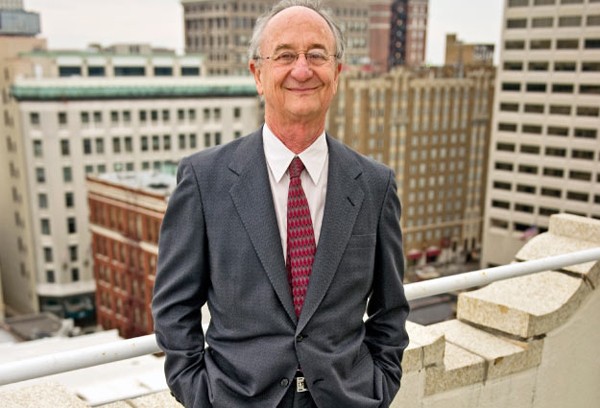
Henry Turley
Henry Turley
Some developers leave behind a footprint on their community. Behind Henry Turley will be an entire Memphis landscape. Turley’s brilliance was in recognizing — and acting upon — what now seems obvious: The most valuable real estate in the world is next to water. With downtown Memphis perched alongside the mightiest stream in North America, a breathtaking neighborhood (or more) awaited birth.
With Jack Belz, Turley, developed the upscale Harbor Town residential and commercial center on Mud Island, the low-income and middle-income Uptown residential development north of St. Jude Children’s Research Hospital, and South Bluffs, where he lives.
Stroll through Harbor Town or South Bluffs today, and you’d think the mighty homes and river views have been there a century when, in fact, most are barely 20 years old, the realization of Turley’s vision for making downtown more than a business center.
Turley is a board member of Contemporary Media, the parent company of Memphis magazine and the Memphis Flyer. A native of Memphis and graduate of the University of Tennessee, Turley is known for his plainspoken good humor, creativity, and unfailing belief in downtown and the restoration of public spaces in older neighborhoods.
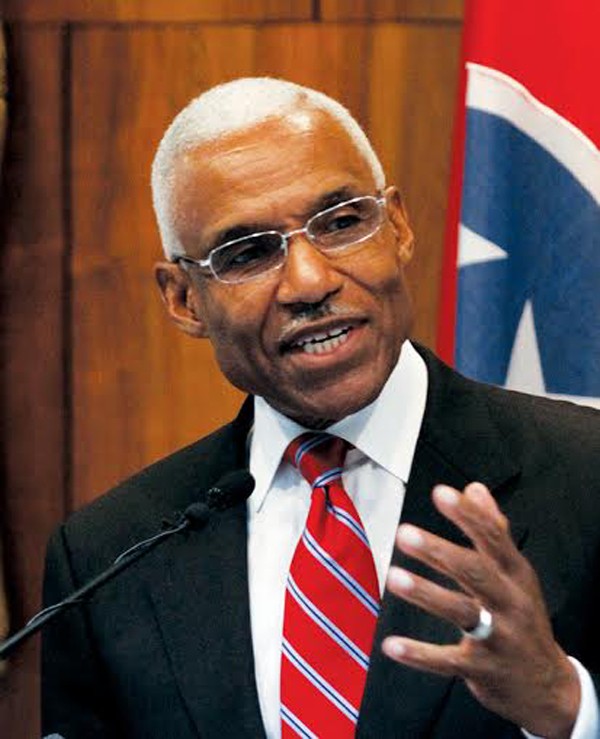
AC Wharton
A C Wharton
A native of Middle Tennessee who grew up on country music and both graduated from and taught at the Ole Miss Law School, Wharton is the epitome of crossover and conciliation, and either of those “c” words could be his non-existent middle name. (“A” doesn’t stand for a name either.)
Wharton’s major contribution was to restore calm and a sense of unified purpose to the city after the contentious last years of his mayoral predecessor Willie Herenton’s lengthy tenure. Hard-working, eloquent, and good-natured, Wharton was Shelby County’s Public Defender for many years, then easily won two four-year terms as county mayor before winning a special election to succeed Herenton, who had resigned, in 2009. Reelected in 2011, he has had to grapple with dwindling revenue, a never-ending budget crisis, and attendant crises in public services.

Sherman Willmott
Sherman Willmott
The irascible Willmott has worked like a Tahiti-shirted puppet-master, shaping a lot of cool and important Memphis stuff over the past 25 years. In 1988, he and Eric Freidl opened Shangri-La Records on Madison Avenue, which became a center for the burgeoning alt-music scene. Soon they were mixed up in independent record distribution and releasing records by the Grifters that earned national accolades and a big record deal. Willmott kept the Stax flame lit during the dark ages and was instrumental in curating the Stax Museum. His work with master archivist Ron Hall formed the basis for the acclaimed wrestling movie, Memphis Heat, which is a great film and a better document of how hilariously weird Memphis really is.

































 JB
JB 


